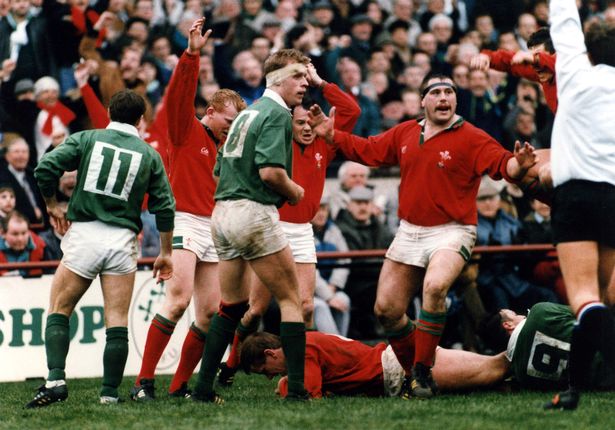In my blog ahead of the 6 Nations, I expressed concerns about how rugby needed saving, since it was all too often turgid, formulaic and unentertaining.
Well, after this breath-taking and deeply satisfying championship, I am puffing on a metaphorical cigarette, if you get my drift, as I reflect on one of the finest tournaments in recent memory.
There is hope after all, more than that in fact, because this was rugby to be celebrated and a totally absorbing competition.
So many talking points, so many game changing moments, so much to remember.
No doubt Wales’ heart breaking yet ultimately successful campaign was a contributing factor to the enjoyment, but I watched this as someone who needed some salvation rather than silverware. And I got it, in lumps so to speak.
It is though, hard to put my finger on why it delivered when so many games don’t at the moment. Greater ambition and intent perhaps, better collective skill sets maybe, I was more invested probably and there was more jeopardy in respect of the outcome of each game. I’m really not sure though, and yet there were some noticeable changes in approach for me.
The ‘one man rumble round the corner’ seemed to have been replaced by a one pass, one man ruck, and then repeat. Still no players attracted to the breakdown, but certainly pacier and more edifying to watch, and far more likely to create some space after multiple phases.
There also seemed to be a greater willingness to counter attack from the incessant box kicks, whereas some of the strategic attacking kicking was as inventive as it was effective.
However it’s explained though, this was not a panacea for all concerns, and the game still has a lot of sorting out to do. The ‘ruck’ area remains a shambles, and the spectacularly inconsistent refereeing of it was evident in the penalty given against Corey Hill that all but lost Wales the game and the Grand Slam. He could justifiably point to no end of rucks previously, in this game and the whole tournament, where that exact same approach went unpunished, namely where someone who was latched on to the ball carrier goes to ground with him in the tackle. That said, when you’re running the clock down, you are under scrutiny and have to be squeeky clean.
This isn’t sour grapes, just further evidence that ruck laws are applied arbitrarily at best, and that’s being kind. It is all too symptomatic of the ruck malaise, as were the various sending offs, and there are frequently grey areas amongst the red cards. Quite simply, the ‘ruck’ needs sorting.
This problem of functionality and safety agendas colliding, has also now been extended to the tackle area. Good luck to Bundee Aki for example, in going low on a charging Billy Vunipola who is leading with head and shoulders! Nothing but danger down there! Alternatively, Finn Russell was harshly sent off for a poor fend on a tackler who was himself upright and may have been sent off had Russell not fended!
The intent to make the game safer is sound, and maybe it’s work in progress, but we need to be careful where we’re heading with all this for a number of reasons.
On that note, can we please outlaw the ‘crocodile roll’ as it has come to be called, which is a variant of the Greco wrestling I referred to it in my previous blog. This is a completely illegal procedure that ‘did for’ Jack Willis and has no place in the game. Neither would there be time nor necessity for it in a proper dynamic ruck situation.
And whilst we’re talking about animals, the ‘caterpillar ruck’ is a hideous creature that simply has to become extinct as quickly as possible.
On that note, Italy must be sweating a bit as well, since sadly they are a ‘given’ in terms of match outcome, their saving grace being a good away trip and the fact that without them there would only be two games a weekend.
Finally, as we moved back to domestic matters this weekend and the all-Ireland culmination of the Pro 14, it was a reminder that we’re not out of the woods yet. Not the best of matches. This 6 Nations Championship however, has demonstrated that at the very top end of the game at least, rugby can deliver just as well as it ever has.
Was it good for you too?

